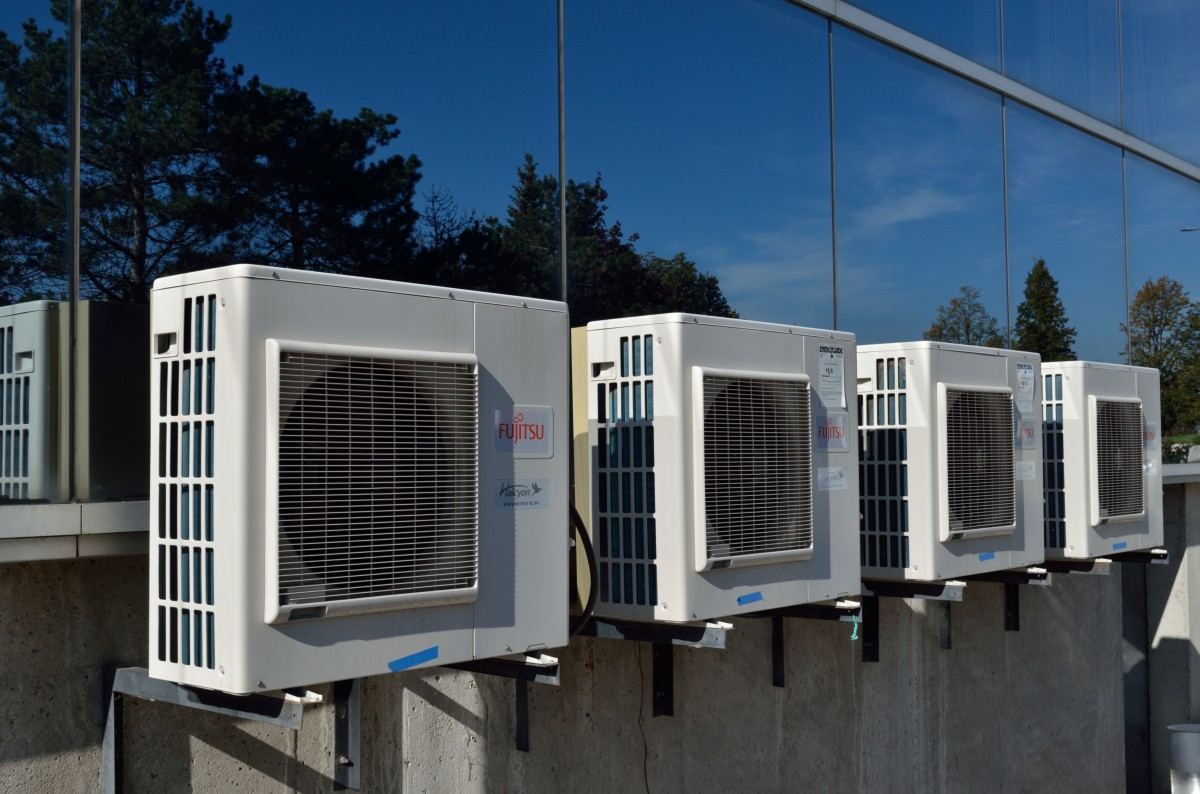Ice can form on air conditioning equipment, dramatically reducing its efficiency and making it work much harder to cool interior spaces. You may not notice the ice at first but instead will realize the unit is running at its capacity without having much cooling effect.
A frozen AC unit can also result in the system failing entirely, causing damage that could require expensive repairs or even replacement. This can happen for various reasons, such as low refrigerant or insufficient airflow through the system. If you find an air conditioner has formed ice, you will want to shut the unit off immediately. The first step in remedying the problem is allowing it to defrost so you can accurately assess the cause.
Overview
Indoor air conditioning isn’t just a convenience—it makes many places liveable that would otherwise be prohibitively uncomfortable. Modern air conditioning units are more efficient than ever and provide more significant cooling at reduced operating costs but require regular maintenance and occasional repair. It’s generally a good idea to make AC inspection and service a regular part of other types of building maintenance.
Technological advances haven’t found a permanent solution to a common problem seen in air conditioning. Ice formation can reduce the efficiency and effectiveness of an air conditioner and can even damage it beyond repair. If you’re tasked with maintaining an air conditioning unit and ensuring its good working condition, the information here can help you diagnose and fix common problems.
Causes and Symptoms of Ice Forming on AC Unit
Various things can cause ice to form on the exterior of an air conditioning unit. One of the most common is low refrigerant. If an AC unit hasn’t been serviced in some time or has a leak in the coolant reservoir, it can result in lowered pressure. Low pressure in an air conditioner cooling system can cause ice to form on the AC’s evaporator coil, which impedes its function.
A dirty evaporator coil can also cause ice to form on the surfaces of an air conditioner, as the dirt and grime on the metal surfaces of the coil will restrict airflow through the unit. When this airflow reaches critically low levels, the AC unit will run harder, using more electricity. This can damage—or even destroy—the compressor.
Mechanical failure is also a common cause of ice formation. Broken wiring, broken or obstructed valves, a damaged fan, kinked coolant lines, or a blocked drainage tube can all cause an air conditioning system to form ice and eventually freeze up. Though these conditions will require repair regardless of ice formation, any ice formed by these problems can cause further damage to the air conditioner, resulting in increased costs.
Restricted airflow through the AC unit can impede the proper function of an air conditioning unit, and too little airflow will cause the operating temperature to drop low enough for ice to form. This can be caused by dirty air filters, closed or obstructed vents, clogged or damaged ductwork, or some other obstruction that impedes the flow of air through the unit.
Though it may seem obvious, exterior air temperatures that are too cold will cause ice to form. Air conditioning units aren’t meant to be used when the outside temperature is below 17 degrees, and if the AC is left running, this may cause ice to form.
How Can You Prevent It From Happening?
Proper maintenance and regular inspection can prevent many underlying causes of ice formation, but each specific reason has a corresponding solution.
If low refrigerant is the cause, inspection and servicing by a qualified technician will be necessary to repair the leak or other underlying cause. The technician will then replace or recharge the coolant, which should restore proper function.
When the cause is dirt or debris impairing the normal function of the evaporator coil, the coil will need to be thoroughly cleaned or repaired. Improper or inattentive cleaning can damage the coil, so care should always be taken.
In the case of mechanical failure, a properly trained technician will be able to diagnose the cause. In most cases, the normal functioning of the unit can be restored, but in some instances, the underlying cause of damage will require the complete replacement of the unit.
If restricted airflow is causing ice to form, the underlying cause will have to be addressed. The air filter may need to be replaced or the ductwork repaired. Once adequate airflow is restored, the unit should function normally.
Though it should be obvious, if ice has been caused by running an air conditioning unit when the outside air temperature is below 17, the unit should be turned off and allowed to thaw. In some cases, ice formed in this way can cause permanent damage.
Schedule A/C Repair Regularly in the season
Having a trained professional regularly inspect and service an air conditioning unit is always a good idea. Regular maintenance will almost always prevent all the above issues. A qualified technician will determine when an air conditioning unit requires preventative efforts beyond routine cleaning and maintenance. By identifying minor problems before they can develop into more significant issues, the proper function of the air conditioning unit can be preserved, and any unplanned and potentially expensive repairs can be avoided.
Summary
Different underlying causes can contribute to ice formation on an air conditioning unit by impeding some other function necessary for its proper operation. Air conditioning and refrigeration units require a rough environmental equilibrium to function. Any significant change in these conditions can cause a unit to fail.
If coolant can’t circulate properly, airflow is insufficient, or if components of the air conditioning unit are dirty or damaged, the unit will be unable to maintain the conditions necessary for its normal operation. Ice will form, further preventing normal operation and causing further damage.
To prevent these underlying causes, have a skilled professional inspect and service the unit twice a year. Ideally, these service calls would be performed just before the peak cooling season and again just after. Adequately maintained in this way, air conditioning should function normally, keeping housing interiors comfortable year-round.







